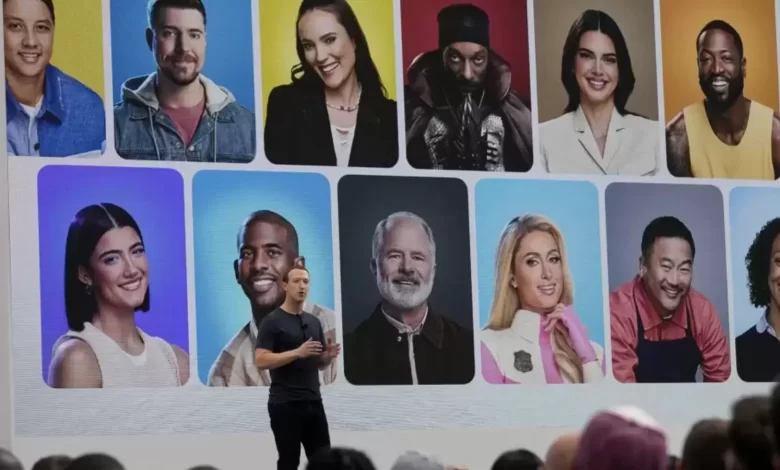Mind the Gap: Why American companies are wrong to roll back DEI policies.

It’s a tiny word, an acronym to be precise, but few topics have been as explosive or divisive as diversity, equity and inclusion (DEI) in Donald Trump’s America. Meta CEO Mark Zuckerberg at a conference at Menlo Park in September 2023(Associated Press) In an election campaign where Trump made race, gender and ‘wokeism’ central issues, promising to rollback DEI initiatives and scoffing at Kamala Harris as a ‘DEI candidate’, no surprises that vast swathes of corporate America has quickly fallen into line with its own announcements. The most recent to join the party is Meta, the parent company for Facebook and Instagram. Days after scrapping its third-party fact-checking programme, CEO Mark Zuckerberg said it was junking its DEI programme. Meta, reports AP, will no longer have a team focused on diversity and inclusion and will instead “focus on how to apply fair and consent practices that mitigate bias for all, no matter your background.” Meta joins a slew of companies including Amazon, Walmart, Boeing, Ford and McDonalds that have announced DEI rollbacks. The slide back began with the 2023 US Supreme Court—packed with Trump’s handpicked conservative judges during his first presidency—ruling that race-based affirmative action in college admissions is unconstitutional. This made it easier for some corporates to do away with DEI policies ostensibly to keep up with a changing legal and political landscape. But, says an India-based DEI consultant for an American firm who asked not to be named, there is a feeling that diversity has “gone too far”. While she’s as yet unsure what her firm’s position is, she said she understands that diversity quotas mitigate against merit. The far bigger challenge is inclusion and “making everyone feel like they belong”. Elon Musk, the world’s richest man and current BFF with Donald Trump is unambiguous. “DEI must DIE,” he tweeted, taking to X again this time to blame DEI for—of all things—the failure to contain the wildfires in Los Angeles where the fire chief is a lesbian and old fire department documents speak of the need to increase diversity. The case for DEI Good for business? In India, companies haven’t given up the holy grail and are, fortunately, moving towards embracing greater diversity and inclusion. Tata Consultancy Services with 500,000 employees globally has a 35% female workforce; 15% in leadership roles. It’s 40% women employees at Infosys, 45% at Hindustan Unilever, and just under half or 48% at Accenture. Lemon Tree hotels is famously inclusive with 12% differently abled employees. “There is a fundamental difference between how DEI efforts have been framed in India and how they’ve been framed in the West,” says Parmesh Shahani who heads Godrej DEI Lab. “At the Lab, we work on empowering inclusion within the Godrej Industries group, help build DEI ecosystems across the rest of corporate India and bring ideas related to DEI into the mainstream.” On campuses, diversity hiring for roles ranging from software development to mechanical engineering is on the rise, reports Mint as companies “try to come across to investors and the public as forward-thinking entities with good corporate governance norms.” To be sure, some inequities, caste most notably, remain as sticky as ever. A 2019 study of 4,005 corporate boards found that 94% of directors were from dominant castes, reported news website Scroll. Yet, DEI matters for several reasons. First is the moral and ethical imperative in including people who’ve been horically under-represented—people with disabilities, scheduled castes and tribes, women, the LGBTQI+ community. Second, to put it baldly, diversity and inclusion really are good for the bottom line. McKinsey’s 2024 annual report that looked at diversity in 1,265 companies in 23 countries found that those with diverse leadership have higher financial returns. Third, companies that adopt DEI as conscious policies, tend to be more innovative and creative. “Inclusive business practices are correlated to creativity, innovation and openness as well as a rise in consumer interest and demand,” says Shahani. And fourth, DEI tends to create a virtuous circle. In Malanpur, about an hour out of Gwalior, the Godrej consumer goods factory that had been set up in 1991 did not have a single woman employee. Then, five joined, all in desk jobs. At last count in 2024, there were 75 women employed in the factory. The company’s goal is to take this up to much more, Shahani tells me. A worrying turn in America A changing workplace?(Maura Losch/Axios) In the US, the killing of a black man, George Floyd a white policeman in 2020 led to corporates rushing to support social justice causes. Today, under the leadership of a man who denies climate change, who derides transgender care and who remains proud of his role in rolling back abortion rights, there is a worrying turn towards more traditionally toxic masculine roles. The aftermath of the election saw a truly ugly turn with “your body, my choice”-kind of triumphal gloating on social media. Surfing away(Mark Zuckerberg on Instagram) Mark Zuckerberg (apologies, him again) recently told podcast host Joe Rogan that American companies had become neutered and needed to regain their “masculine energy”. In a country where women remain under-represented in top management, occupying just 41 CEO positions at S&P 500 companies, it’s not clear what Zuckerberg is referring to. Fortunately there are those who are holding their ground. At Walmart a group of shareholders representing $266 billion in funds has asked the company to explain its DEI rollback. Share who say DEI initiatives benefited (purple), hindered (orange) or had no impact (grey) on their career(Axios Visuals) Apple has said it will continue with its DEI programmes. Indeed, a recent survey found that a majority of Americans across demographic groups said DEI had made no impact on their personal careers and that there was broad support for the idea of diversity within most companies.







